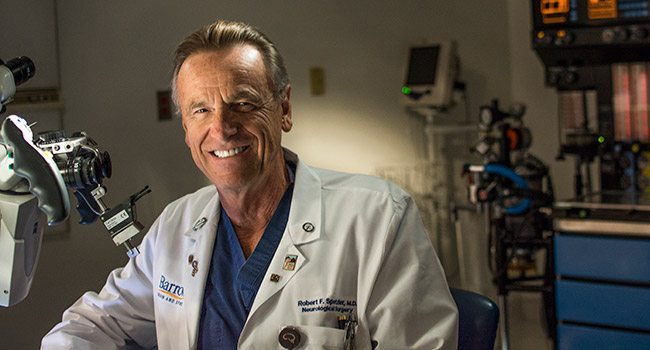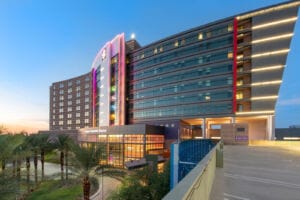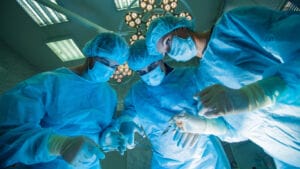Dr. Robert Spetzler is a true lifesaver.
The retiring president and CEO of Barrow Neurological Institute has played a formative role in many advances in neurosurgery, including the use of the cardiac standstill procedure that stops the heart and blood flow so surgeons can safely treat blood vessel problems deep in the brain. He is particularly known for his surgical expertise in cavernous malformations (an abnormal cluster of blood vessels) and his remarkable skill in treating aneurysms. Dr. Spetzler has performed more than 6,400 aneurysm surgeries at Barrow.
For those reasons and many others, Dr. Spetzler earned the Lifetime Achievement Award at Az Business magazine’s healthcare leadership awards on May 4.
Az Business: What attracted you to medicine?
Robert Spetzler: When I was 5 years old, I caught tetanus, which was almost universally lethal at the time. I remember going to the hospital in the middle of the night and being put in a room with iron lung machines because I wasn’t expected to survive the night. I remember my mother standing at the window, crying, saying, “If he’s going to die, let me take him home.” But I was one of the first patients to receive a drug called penicillin. I spent three or four months in the hospital and even though no one in my family had gone into medicine, that experience played a role in me becoming a doctor.
AB: Why did you focus on the brain?
RS: I knew I wanted to be a neurosurgeon before I entered high school. I considered it the most challenging. The mind is what makes us unique as a species. When people are confronted with illnesses that affect the brain, it does portend an incredible responsibility on the person responsible for their care.
AB: What has been the biggest challenge you’ve faced?
RS: It’s really challenges and opportunities. The challenges are treating diseases which have defied our collective wisdom in managing them effectively, while at the same time having opportunities to overcome previously incurable diseases, being able to traverse to any portion of the brain, and seeing personalized medicine with molecular profiling revolutionize our whole approach to the individual.
AB: What has made you so innovative?
RS: I come from a family of educators and engineers. Finding solutions to problems was the mantra of the family. My father always said, “There is never a problem that is too difficult for an engineer.”
AB: For what do you want people to remember you?
RS: The accomplishment that gives me the greatest pride is my professional offspring and being involved in the education of so many top-notch neurosurgeons. I’ve also had the opportunity to create new operations and create new instruments which are commonly used. If any of those help in the reduction of morbidity and mortality, it gives you a very good feeling.




